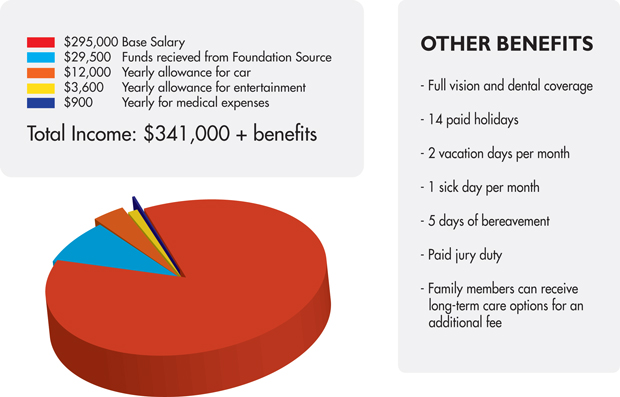
In a recent board of trustees meeting for the California State University system, the Committee of University and Faculty Personnel announced President Dianne Harrison’s yearly salary as $324,500, including her list of CSU approved benefits.
The meeting, which took place July 17, disclosed Harrison’s yearly base salary as $295,000 with an additional $29,500 from CSUN foundation funds. Her salary is 10 percent higher than former president Jolene Koester’s. However, Harrison’s monthly paycheck will not be paying for many of her presidential perks.
“Harrison’s salary, the dollar figure, is separate from her benefits, but they are all part of her compensation, which is the totality,” said Michael Uhlenkamp, the director of media relations and new media for the CSU.
The board of trustees also announced that Harrison is required to live in a Northridge home that the university has established for presidents. During her relocation process from Monterey, Harrison’s moving, temporary storage for 60 to 90 days, and interim lodging costs were authorized by Chancellor Charles B. Reed.
A monthly allowance of $1,000 is in place for Harrison’s automobile including the costs of maintenance, insurance, fuel, and other related fees. The state’s general fund will supply her with a $300 per month entertainment allowance to “defray entertainment costs incurred in the course of conducting official business and institutional development activities,” according to an executive benefits summary provided by the CSU.
The executive benefits summary also states that the CSU will pay for Harrison’s yearly physical exam and up to $900 yearly for expenses that the president’s medical provider does not refund. All monthly premiums from the medical provider are split between the CSU and Harrison, with the CSU paying greater amount. The CSU pays the full amount for any vision or dental care that Harrison needs.
Uhlenkamp said that the executive benefits summary is a provision for all CSU presidents.
“It is a standard agreement between the CSU and the presidents,” he said. “All presidents get the benefits.”
The executive benefits summary provides Harrison with 14 paid holidays throughout the year, 13 of which are pre-established. She will receive two vacation days per month, which can be accrued up to 20 days, and one sick day per month. If she retires, any accrued sick days can be converted into retirement credit.
Five days of paid bereavement leave will be granted to the president in the event of a close relative passing away. Harrison will also be paid during jury duty leave. Retirement plans and life insurance options are available for the president. Her family members are also eligible for long-term care options for a fee.
Harrison’s voluntary options for care plans based upon the outline in the executive benefits summary are flexible and numerous. These benefits, which stand separately from her salary, cover Harrison and her family, if she chooses, for a lifetime.
The benefits that Harrison will receive are provided to all of the CSU presidents.
“The mission of the CSU would have been what attracted (Harrison) to the position, not the perks,” Uhlenkamp said.
Three newly appointed executives at CSU campuses were granted pay raises, with Harrison being one of them.





